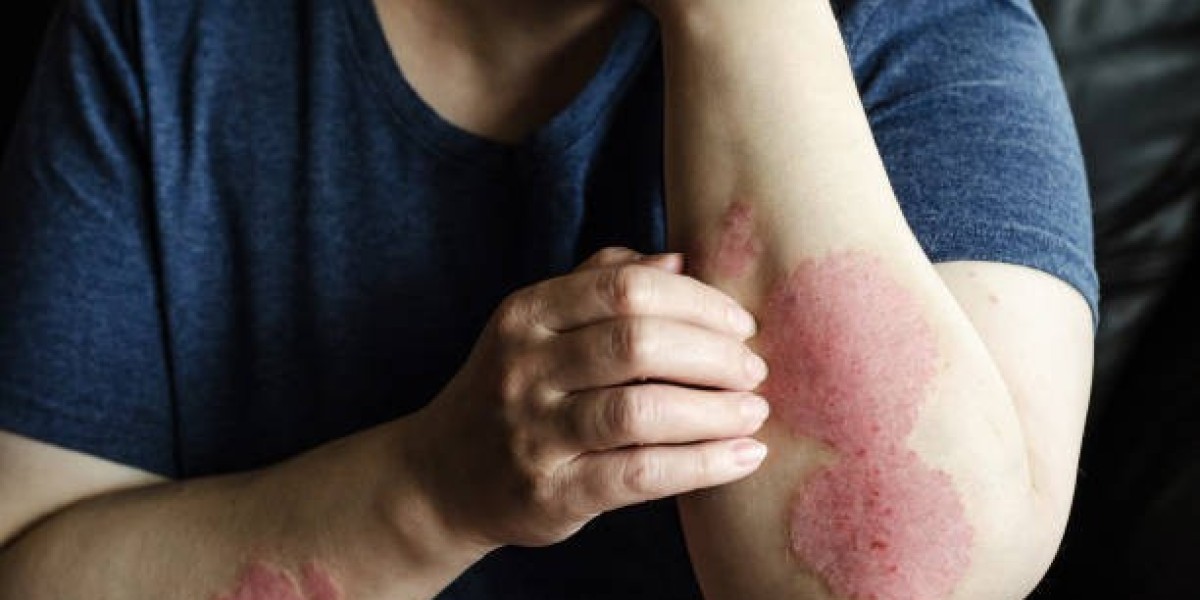Psoriasis is a chronic skin condition that can significantly impact quality of life, affecting individuals with its persistent and often uncomfortable symptoms. For those in Riyadh seeking relief, understanding the range of psoriasis treatment options in Riyadh is crucial. This guide provides a comprehensive overview of effective treatments, helping you navigate the path to clearer skin.
Understanding Psoriasis
What is Psoriasis?
Psoriasis is an autoimmune condition where the immune system accelerates skin cell growth, leading to thick, scaly patches on the skin. These patches can be itchy, painful, and sometimes even bleed. The severity of psoriasis can vary, with some people experiencing only a few patches and others having widespread coverage.
Causes and Triggers
While the exact cause of psoriasis is unknown, it is believed to be influenced by genetic and environmental factors. Common triggers include stress, infections, certain medications, and skin injuries. Understanding these triggers can help in managing and reducing flare-ups.
Treatment Options
Topical Treatments
Topical treatments are among the first lines of defense against psoriasis. These are applied directly to the skin and can include:
- Steroid Creams: These are the most commonly prescribed medications and help reduce inflammation and slow skin cell growth. They are available in various strengths, from mild to potent.
- Vitamin D Analogues: These treatments, like calcipotriene, help to slow down skin cell production and are often used in conjunction with other therapies.
- Coal Tar: Though less common today, coal tar can help to reduce scaling and inflammation.
Phototherapy
Phototherapy involves exposing the skin to ultraviolet (UV) light under medical supervision. This treatment helps slow down skin cell production and reduce inflammation. There are different types of phototherapy:
- UVB Therapy: Uses UVB light to target affected areas and can be effective for moderate to severe psoriasis.
- PUVA Therapy: Combines UVA light with a medication called psoralen to increase sensitivity to the light, used for more severe cases.
Systemic Treatments
Systemic treatments affect the entire body and are usually prescribed for moderate to severe psoriasis:
- Oral Medications: Drugs like methotrexate, cyclosporine, and acitretin work by suppressing the immune system or reducing inflammation. They are typically used when topical treatments and phototherapy are not effective.
- Biologic Drugs: These are newer, targeted therapies that interfere with specific immune system pathways involved in psoriasis. Administered via injection or intravenous infusion, biologics are often used for severe cases.
Integrative Approaches
Lifestyle Modifications
Making certain lifestyle changes can help manage psoriasis symptoms and prevent flare-ups:
- Diet: Some individuals find relief by avoiding trigger foods and incorporating anti-inflammatory foods into their diet. Omega-3 fatty acids, found in fish oil, and antioxidants can be beneficial.
- Stress Management: Since stress is a common trigger for psoriasis, practicing stress-reducing techniques such as meditation, yoga, or exercise can be helpful.
- Skin Care: Using gentle, fragrance-free skin care products and moisturizing regularly can reduce dryness and irritation.
Complementary Therapies
In addition to conventional treatments, some people find relief through complementary therapies:
- Aloe Vera: Applied topically, aloe vera can soothe inflamed skin and reduce redness and scaling.
- Oatmeal Baths: Soaking in an oatmeal bath can help alleviate itching and discomfort.
- Acupuncture: This traditional Chinese medicine technique may help reduce symptoms and promote overall well-being.
Emerging Treatments
Research and Innovations
The field of psoriasis treatment is constantly evolving, with ongoing research leading to new and improved therapies:
- Gene Therapy: Researchers are exploring ways to target specific genes involved in psoriasis, potentially offering more personalized treatment options.
- Novel Biologics: New biologic drugs are being developed to target different aspects of the immune system, offering hope for more effective and tailored treatments.
Personalized Medicine
Personalized medicine aims to tailor treatments based on individual genetic profiles and disease characteristics. This approach could improve treatment efficacy and reduce side effects, offering more precise and effective options for managing psoriasis.
Choosing the Right Treatment
Consultation and Evaluation
Choosing the right treatment for psoriasis involves a thorough evaluation by a healthcare professional. They will assess the severity of your condition, consider any underlying health issues, and discuss your preferences and lifestyle to recommend the most suitable treatment plan.
Monitoring and Adjusting
Effective management of psoriasis often requires ongoing monitoring and adjustments to the treatment plan. Regular follow-up appointments help track progress, manage side effects, and make necessary changes to optimize results.
Conclusion
For those seeking relief from psoriasis in Riyadh, a variety of treatment options are available to address different needs and preferences. From topical and systemic treatments to lifestyle modifications and emerging therapies, there are effective solutions to help manage and alleviate the symptoms of psoriasis. By understanding these options and working closely with a healthcare professional, you can take proactive steps towards clearer, healthier skin.
This guide provides a comprehensive overview of psoriasis treatment in Riyadh, helping you make informed decisions and find the most effective approach for your needs. Remember that managing psoriasis is a journey, and exploring different treatments and strategies can lead to better outcomes and improved quality of life.







